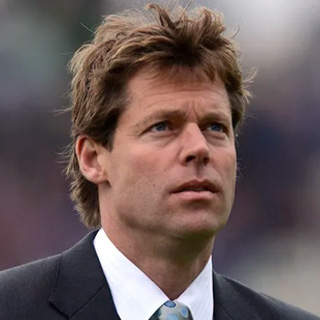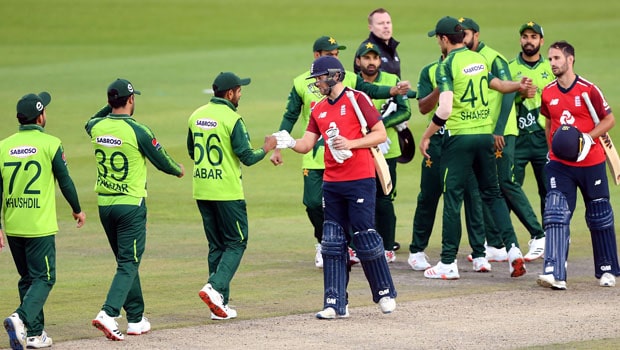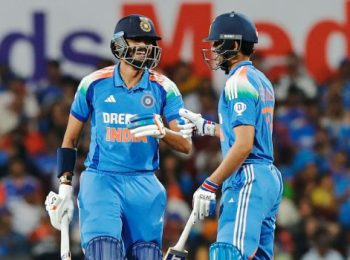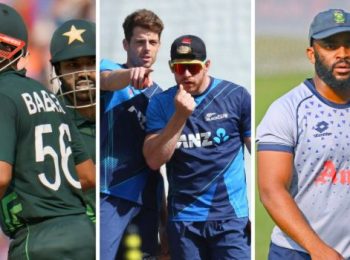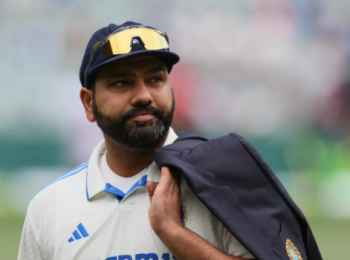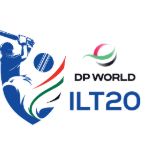It is clear that Pakistan’s preparation hasn’t been entirely smooth ahead of their first tri series clash vs New Zealand. There have been multiple changes in the coaching staff, creating a somewhat unsettled atmosphere leading to the Champions Trophy and this tri-series.
That said, they have a squad rich in experience, with a balance of seasoned players and emerging talent. Key figures like Fakhar Zaman and Faheem Ashraf have returned, both of whom have been solid pillars of Pakistan’s one-day cricket for years.
I think that’s a smart decision. However, there’s still some uncertainty around how the top order will shape up.
If it were up to me, I’d open with Babar Azam and Faheem—I believe that’s their best approach moving forward. Unfortunately, Saim Ayub misses out, which is a real shame as he’s been a standout performer and a revelation for the team. That will be a significant loss, but I still believe Babar-Faheem is their best option at the top. Beyond that, it’s uncertain how the rest of the batting order will shape up—perhaps Saud Shakeel or Kamran Ghulam could feature.
There will undoubtedly be a lot of pressure on the top order, not just to provide a solid start but to set a positive tone as well. Historically, that hasn’t always been Pakistan’s strength, but strong starts in the powerplay will be crucial. That’s the approach I expect them to take with the bat.
Spin is a concern for me. They have only one genuine specialist spinner in Abrar, and while they do have other spin options, I’m quite surprised that Shadab Khan isn’t in the squad. To be honest, his inclusion would have brought valuable experience, a reliable spin option, and depth in the batting lineup—but he’s not there.
That said, Pakistan’s real strength, in my view, lies in their bowling attack. If they’re fit and in form, it’s an imposing lineup. Shaheen Afridi hasn’t been at his best recently, but with Haris Rauf, Naseem Shah, and Mohammad Hasnain, they still have a formidable pace unit.
They have all the pace they need, but in Pakistan’s conditions, it will come down to how well they utilise that speed and variation—whether it’s executing yorkers, generating a bit of reverse swing, or adapting to the surfaces.
Still, it’s an imposing lineup, and for me, that remains Pakistan’s biggest strength, as it has been for many years. But their fast bowlers will need to deliver. Looking ahead to this tri-series and the Champions Trophy, the team with the best bowling attack could make all the difference—and Pakistan will be one to watch.
There will inevitably be a lot of focus on batting—big hits, flat wickets, and dynamic batters making a huge impact in the upcoming ODI games. But for me, especially in these conditions, the real question is: which bowling attack will be the most inventive and adaptable?
If the pitches are indeed flat, the key will be finding ways to disrupt opposition batting early, put teams on the back foot, and break partnerships in the middle overs. Pakistan is one of those sides capable of doing that. They have a highly experienced and skilled bowling attack, but they’ll need to be at their absolute best.
At the top, Babar will be crucial, though he has been a little out of form recently. He has particularly struggled against left-arm spin, as seen in the Test series against the West Indies. That’s why I’d put him at the top and encourage him to take control early, setting the tone for the innings.
New Zealand are a team you can never count out in ICC tournaments or global competitions. While the focus is on this tri-series for now, I really like the balance of their squad. They have well-rounded combinations, with quality pace options in Lockie Ferguson, Matt Henry, and the tall, bounce-generating Will O’Rourke. If conditions demand it, they certainly have the firepower to make an impact.
Michael Bracewell is a key asset for New Zealand—not only as a frontline spinner but also as a dependable all-rounder. With an ODI batting average of 40 and a bowling economy rate of 5.21, he has proven to be both effective and consistent across a good number of matches. That reliability adds to the well-rounded balance of this New Zealand squad.
Kane Williamson remains pivotal, while Rachin Ravindra is an exciting talent with immense potential. Devon Conway’s form will also be closely watched—if he can get runs at the top, he can provide the platform for the rest of the lineup to capitalize.
One of my favorite players in this setup is Daryl Mitchell. In subcontinent conditions, he’ll be a massive asset—not just for his composed, steady batting but also for his ability to take pace off the ball with clever cutters in the middle overs. He’s a highly intelligent cricketer, and I expect him to have a big impact, not just in this tri-series but also in the Champions Trophy.
Then, of course, there’s Mitchell Santner, a key spinner alongside Bracewell. Add to that the versatility of Ravindra and Glenn Phillips, both of whom bring all-round depth to the squad. These two will play a crucial role not just in the batting lineup but also as valuable bowling options.
In subcontinent conditions—whether in Pakistan, India, or elsewhere—having players in the top five or six who can contribute with the ball is a huge asset. New Zealand has that advantage, with Ravindra’s left-arm spin and Phillips’ off-spin providing additional flexibility. On top of that, they are an outstanding fielding side—quick, agile, and capable of turning half-chances into crucial wickets.
New Zealand is a team to watch, and their preparation for the Champions Trophy is ideal. Playing a few matches in the host nation gives them a significant edge, as many of their players have already gained experience in these conditions. There’s no better preparation than competing in the very environment they’ll face in the tournament.
Fittingly, New Zealand and Pakistan will kick off the Champions Trophy with the tournament opener on February 19—a match that promises to set the tone for an exciting competition.
This is a fantastic opportunity for New Zealand. I understand they’ve called up Jacob Duffy as a backup for Ferguson, and I really hope Ferguson is fully fit. He’s playing in the T20s right now, but Ferguson will be a pivotal player for them, particularly if he can join forces with Matt Henry to deliver genuine pace.
What I really admire about New Zealand is their versatility—they’re one of the few teams comfortable opening with a spinner. If the opposition gets off to a strong start against pace, they can adjust by introducing spin early in the power play. With options like Mitchell Santner and Rachin Ravindra, they have the flexibility to take the pace off the ball when needed.
Overall, New Zealand’s squad has a well-rounded, balanced feel to it—not just for this series but also looking ahead to the Champions Trophy.






